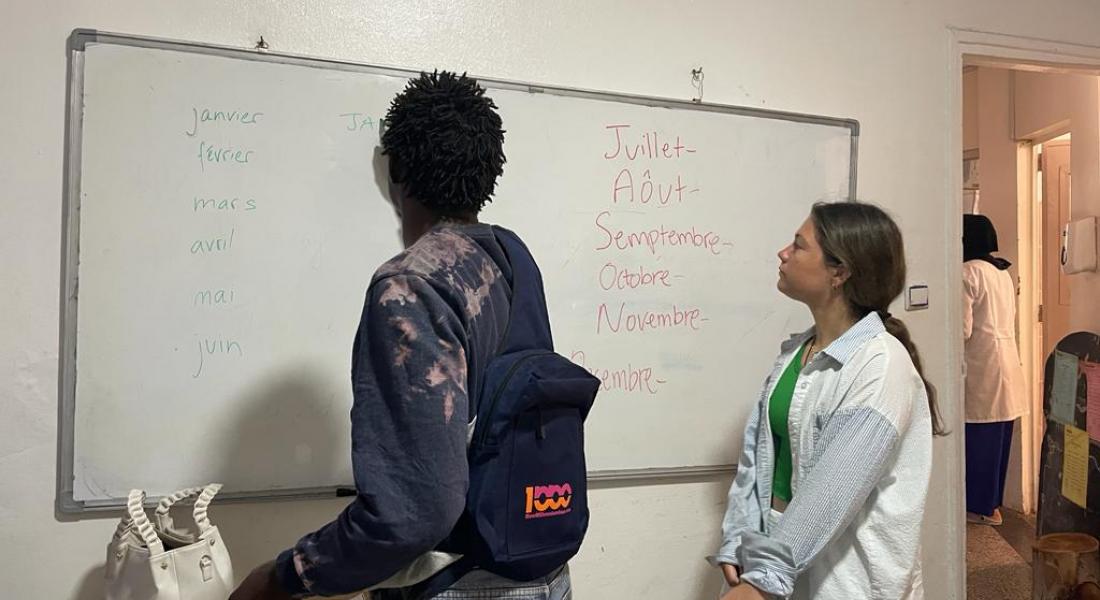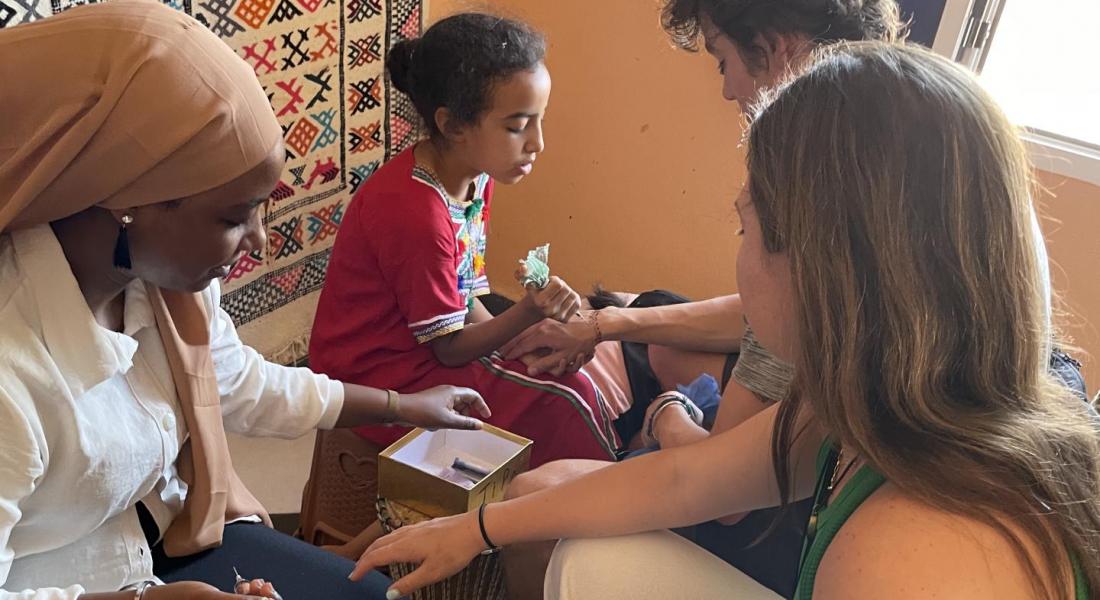Grace Capko ‘25 (global affairs) was funded through an Experiencing the World Fellowship to travel to Morocco to work on her project, “Non-State Actors’ Role in Alleviating the Refugee Crisis in Morocco”.
As I continued giving lessons, I realized that this was a great way to get to know the migrants and build a trusting relationship with them. I was at first a little frustrated that teaching would be my main job, however I quickly realized that this was truly a gift and I learned so much from it. I also had to have a sense of humility and be flexible in my work as I was there to best help the organization, not my own independent work. Furthermore, after a week went by, it was evident that these lessons were a great foundation for a relationship with the students.
To best suit their needs, we would ask them what they needed English for and what words/lessons they really needed. Since most would be working in the tourism sector doing jobs in restaurants and hotels, we began to incorporate that vocabulary into our regular lessons. While lesson planning was a task with lots of responsibility, the freedom allowed me to specifically cater the lessons to what they asked for, which they greatly appreciated.
In my last email I mentioned how it was frustrating and difficult to manage having many different levels of English in the classroom because it was hard to plan lessons for them and I could sense the more advanced students' annoyance. However, as the days went on, I realized they were a great help and addition to the classroom. They would raise their hand and ask more advanced questions and wanted more developed vocabulary. There were three different groups we would teach, and one day I had to go back into one room where one group was to grab some markers as I was about to give a lesson in the adjacent room to a different group. When I walked into the room, one of the advanced students was writing the English alphabet on the board and sounding out the pronunciation to the rest of the class. It was a really beautiful moment to see how they all came from different countries and backgrounds, but were now connected and supported each other. In the other group, there was an advanced student who sat next to a younger woman who basically had no English background. She was quiet, and he was not. So, each lesson, he would help her and answer any individual questions she had but was too scared to ask us. From these interactions, I learned that although we did have lots to offer them, the relationships among the migrants were the most valuable to them. In a foreign country, they were able to meet others similar to them, and support each other. This was a great thing and I think was one of my biggest takeaways from the work.







